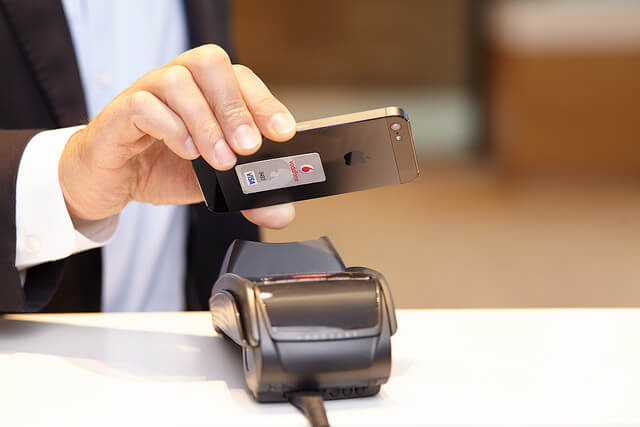Plutus develops a mobile application that enables buying goods and services with Bitcoin at any NFC point-of-sale worldwide, connects buyers and traders directly, and has the potential to lower fees through optimization.
A London-based digital currency startup Plutus has recently announced developing a mobile application that enables buying goods and services with Bitcoin at any store in the world that accepts NFC-based contactless payments.
“The intent of the app is to be practical. Plutus plugs into existing infrastructure to allow contactless payments which reward you on the the blockchain. It’s simply a stepping stone towards adoption and a practical use-case that many have been asking for,” commented Danial Daychopan, Plutus CEO & Co-Founder.
A user simply sends Bitcoins to the address displayed on the application and gets the equivalent in fiat on a prepaid virtual debit card (secure token) to make contactless payments worldwide.
Plutus application rewards a user with Plutons, digital assets issued as a token on the Ethereum blockchain, just like cash back or air miles on a credit card. The rebate starts at 3% and lowers as the network grows. Earned Plutons can be converted to spend in any NFC-enabled store in the same way as Bitcoins. The key benefits of Plutons are zero fees, free conversion to fiat, and a rebate for every purchase you make. Pluton transactions confirm instantly, compared to the bitcoin network which requires 10 minutes to an hour or more.
Plutus uses its own decentralized exchange Plutus DEX to directly connect customers and traders. The Plutus DEX uses programmable smart contracts running on the Ethereum blockchain to make peer-to-peer trading seamless and independently secure. This renders the exchange process dynamic and decentralized.
Users must deposit fiat currency such as USD, EUR, GBP, etc. into an escrow bank account that is connected to the Plutus DEX to use the DEX as a trader. This is recorded on to a smart contract along with a user’s trade information, which then enables executing a trade allowing a buyer to send Bitcoins directly. This way, no funds are stored on the exchange itself. Once the smart contract acknowledges both sides of the trade, the fiat is released from escrow into the user’s virtual debit card (secure token) and a trader receives Bitcoin on an address of his/her choice.
The Ethereum smart contract running the Plutus DEX network holds the digital currency (Bitcoin and Plutons) during the trade, eliminating counterparty risk and rendering it inaccessible to anyone, even Pluton team, until the trade is completed or reversed.
As said at the company’s website, its vision was to create a new way to trade and spend Bitcoin by removing the need for a centralized exchange (whether internal or third-party).
Therefore, the application consists of a feature-complete peer-to-peer decentralized exchange platform that powers the Plutus payment system. Plutus does not simply improve upon existing solutions, it actually solves brand new problems of centralization, exchange and digital currency payments that were previously overlooked.
